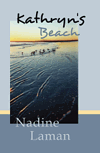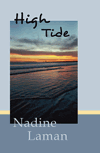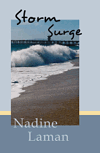There was an article about Tony Hillerman in the Arizona Republic newspaper. I liked the way Mr. Hillerman wrote easy like real Indian's talk. His voice and knowledge of Native American traditions and life made interesting mystery believable, plus I like to think that some people learned things the didn't previously know about the Navajo people by reading Tony's books.
The thing in the article that really made me smile was this:
"When Tony Hillerman finished his first detective novel set on the Navajo Reservation, a literary agent told him it looked like a best-seller. All he had to do was 'lose the Indian stuff.' "
It's funny how we never list the agents who 'pass' on a best-seller. I don't know why we are so protective, but on the other hand, what's to be gained by ratting them out? Agents are human and entitled to make dumb mistakes too. I received rejection letters long after I had an agent. And once I had one, I didn't want him. Figures, don't it? All of that is another story for another day.
The point is the writer has to believe in their ms. They need to step back and look at it with a certain amount of detachment. They have to ask, "How can I make this better?"
And more importantly, how can I make the next ms better?
It is important to constantly hone writing skills. Reading other writer's works is not enough. I know nearly every website says, read all the novels in your genre you can. Well fine for as far as that goes. But do you really want to write in someone else's voice? Read for enjoyment. Learn new skills, enhance the ones you have, assess each 'expert' for what feels right in your gut and in your intellect.
There it is, my opinion.
As a final note, the blog book goes to the printer today. I should have the proof copy by the end of the week. Whoo-hoo!
http://www.azcentral.com/thingstodo/stage/articles/2009/09/24/20090924nativemysteries0927.html
Monday, September 28, 2009
Subscribe to:
Post Comments (Atom)

 When Paul Fenton stops for breakfast in a small town, he gets more than he bargained for in the process.
When Paul Fenton stops for breakfast in a small town, he gets more than he bargained for in the process.
 When two-hundred-year-old human remains are discovered on one of Neptune's moons, Earth's history falls into question.
When two-hundred-year-old human remains are discovered on one of Neptune's moons, Earth's history falls into question.
 Emily's husband persuades her to try thalidomide to ease her symptoms as she is unaware of the devastating effects.
Emily's husband persuades her to try thalidomide to ease her symptoms as she is unaware of the devastating effects.
 Who is the women's shelter bomber? Melissa Ryan suspects that her husband knows.
Who is the women's shelter bomber? Melissa Ryan suspects that her husband knows.
 Further developments with the Wilder family.
Further developments with the Wilder family.
 A hidden past shakes the O'Donovan family to its core
A hidden past shakes the O'Donovan family to its core
 A swirl of emotion and choice, set in Cape Town, South Africa
A swirl of emotion and choice, set in Cape Town, South Africa
 Love is a constant, but it comes at a price.
Love is a constant, but it comes at a price.
 When the road ahead is unclear, sometimes you have to rely on trust.
When the road ahead is unclear, sometimes you have to rely on trust.
 The struggle between good and evil is ages old. It gets all the more complicated when the good guys aren't all good and the bad guys have redeeming qualities.
The struggle between good and evil is ages old. It gets all the more complicated when the good guys aren't all good and the bad guys have redeeming qualities.
 Story of a land mothering two races of people – the light-skinned and the dark-skinned.
Story of a land mothering two races of people – the light-skinned and the dark-skinned.
 A gifted Ukrainian ballerina comes into possession of a mysteriously coded address book.
A gifted Ukrainian ballerina comes into possession of a mysteriously coded address book.
 Six passengers' lives change for better or worse after they arrive in Honiton.
Six passengers' lives change for better or worse after they arrive in Honiton.
 Resilience and love in a harsh and unforgiving age
Resilience and love in a harsh and unforgiving age
 Kathryn's Beach
Kathryn's Beach High Tide
High Tide Storm Surge
Storm Surge
I think as writers or just ordinary readers for that matter we spend too much time reading the latest most thrilling book. There is such a breadth and width out there from the past and present that we have to read as broadly as possible if we are going to learn how to write.
ReplyDeletePublishers who miss out on greatness, like the record companies who turned down the Beatles, the publishers who said no to JK Rowling - maybe it wasn't right for them. But you are right - authors must keep believing, and never give up.
ReplyDeleteThink of writing like oil painting. There is a certain amount of innate talent involved. And yes, one can go to art museums all over the world and study the works of the masters. But one also has to learn about perspective, color, balance, shading, texture, light source, and so much more. Once learned, the artist can knowingly determine what elements to use to construct their unique style.
ReplyDeleteThe same is true of writing. There are techniques and elements that need to be added to the writer's body of knowledge, and these can't be fully understood simply by reading (or viewing works in a museum). To be a professional writer, one must learn the craft.
Trust me, I read a lot of mss that are good stories, but lack the bold writing that comes with confidence from having mastered the tools of the trade. For example, telling is safe writing, whereas showing is art. At the same time, one must know when to show and when to tell, and how to pace each.
Congrats on your book going to the printer today! What a wonderful accomplishment. I admire your perseverence.
ReplyDelete'For example, telling is safe writing, whereas showing is art. At the same time, one must know when to show and when to tell, and how to pace each.'
ReplyDeleteI don't understand.
g.
Great post, Nadine, as always. I read the same thing over and over again-read all you can in and about the genre you're writing in, but what's the use of it if you can't apply your own skills in your own writing?
ReplyDeleteI think it's the belief in the worth of your writing that keeps writers going, otherwise many would give up at the first rejection. What's one man's trash is another one's treasure, some agents make a bestseller out of a poor book, others can't sell a good thing...it's all so subjective.
I seem to be very verbose today :)
I love verbose, keep it up!
ReplyDeleteMy dear Glyn, often telling stops the action. Find and dandy if that is the pacing one wants, or if it is a bridge between scenes. For example, "We walked all day and into the night, the scenery never changed, the rains never let up."
The point there is to set the mood of monotony and to move the characters to a different location. Now I just made that up, but I'd assume that the sentence or two prior to that could have shown the thick brush stinging and slicing paper cuts in their skin as they hacked their way into the tropical forest.
As a writer, I'd expect something 'exciting' to happen after the author deliberately went to such pains to make it boring. They probably they set up camp in a clearing, ate something they had in their packs, settled in for the night, then...something happens, something overtakes the camp.
Pacing then dials up the drama, it is short, quick worded sentences, half-finished shouts, as few dialogue tags as possible - clear up to the end of the action. In that case, the dialogue is likely to carry the 'showing' of the story.
So the set-up was slow, boring, telling, bridges to put the reader in the drudgery of tramping through the rain up the mountain (or whatever).
I know you're reading KB, so the playroom walls was telling. I wanted to introduce the setting, the mentality (heart) of the child-less nuns, and make the reader stand at the door and take it in before moving on.
Granted, there aren't great amounts of action in my trilogy because it is literary fiction and it is largely an internal story vs an external story, like James Bond, for example.
I can give you more on this, if you'd like.
Thanks, I shall look more closely tomorrow.
ReplyDeleteMy guess is, Glyn, you do this already.
ReplyDeleteI see now.
ReplyDelete